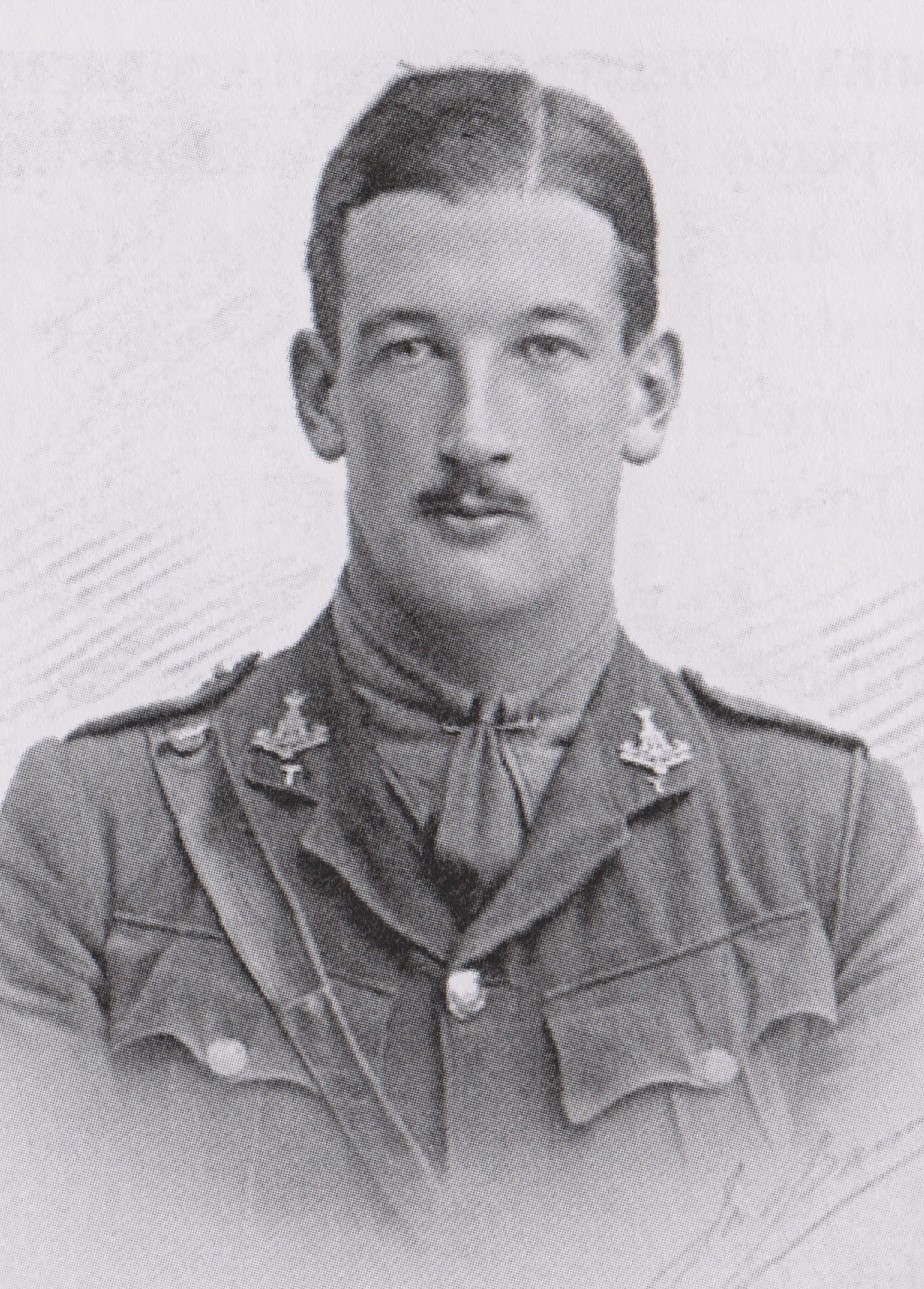
John was born on the 4th January 1890 at East Witton in North Yorkshire and was the eldest son of John and Annie Maughan. They lived at Abbey Hill, a large house overlooking Jervaulx Abbey near Middleham, North Yorkshire. John senior was the agent for the Jervaulx estate.
John was educated at Marlborough College. He was gazetted to a commission in the 4th Battalion, The Yorkshire Regiment in 1909 and was promoted Captain on the 3rd November 1914.
John went to France in April 1915 and was in action at the 2nd Battle of Ypres just a few days later. His distinguished service during this action resulted in him being ‘Mentioned in Dispatches’ by Sir John French. On the 12th February 1916 the Battalion occupied trenches around Hill 60 near Ypres. Work was ongoing repairing trenches when on the 14th February the Germans began to bombard them. The enemy also exploded a mine which killed thirteen men. On the 17th February, ironically regarded as a relatively quiet day, some minor shelling resulted in John being hit and killed by shrapnel. Captain John Maughan was buried in Poperinghe New Military Cemetery.
John’s name is commemorated on the War Memorial at East Witton.
Explore more memories from the ribbon
-
Pte W L Robinson
William Lincoln Robinson was born in 1897, the son of a farmer. By the time of the 1911 census his mother had died and he was living with his father, and sister in Scorton, near Richmond. Robinson enlisted in 1915. At the time he was working at Kirkbank, Middleton Tyas as a gardener. He served with the 2nd and 6th Battalions of the Green Howards as a Lewis Gunner. He survived the war and was discharged from the army on the 15th February 1919. At the moment we don’t know what happened to Robinson after he left the Army. Can you help? Robinson died aged 77 in 1975.
-
2nd Lt W Buckle
Information submitted by Mark Tovey, William Buckle is Mark’s wife’s great uncle. William Buckle was born in Middlesbrough. In 1914 he was a 21-year-old clerk working for a well-known Middlesbrough steel company. The war was 4 weeks old when he, like many other young men from North Yorkshire, went to Northallerton to join their local Territorial Army Battalion – 4th Battalion, The Yorkshire Regiment (4th Green Howards). On 16 April 1915, 4th Green Howards were ordered to Belgium. On 22nd April the German Fourth Army attacked the Allied front line in the North of the Ypres Salient and, using poison gas for the first time, threatened Ypres itself. This was a crisis and, despite their inexperience, 4th Green Howards went straight to the fight. For the next month the Yorkshiremen were in almost continual action, suffering many casualties. Private William Buckle was one of the Battalion’s 200 casualties. He had been shot twice, in the right shoulder and hip. He spent the next 2 months recovering before, as a corporal, training Green Howard recruits in Northallerton. Surprisingly, after his wounds healed, he volunteered for one of the most dangerous jobs in the Army – as a platoon commander. After a 4½ month course at an Officer Cadet Battalion at Denham, Buckinghamshire, Buckle was granted a commission as a Temporary Second Lieutenant in July 1916. The following month he was posted to 8th Green Howards. Buckle served on the Somme through the fierce battles of that summer and autumn until his…
-
Captain Amis
Submitted by Robert Amis. Captain Henry Amis (Robert’s grandfather) was commissioned into the 5th Battalion of the Yorkshire Regiment as a 2nd Lieutenant on 12 March 1915, Henry Amis transferred to the Royal Flying Corps. Family legend has it that 2Lt Amis was prone to crashing, which may account for his transfer back to the Yorkshire Regiment. The then Captain Amis was again serving with the 5th Battalion when on 28 October 1917 he was wounded and evacuated, suffering from the effects of mustard gas. Once he had recovered, he returned to the front line where he faced Germany’s final throw of the dice, the so called ‘Kaiser’s battle’ which was unleashed on 21 March 1918. Henry and the 5th battalion were in the thick of the fighting; trying to hold back the German advance. On 27 May 1918 he, along with 24 other officers and 638 Other Ranks, was declared missing. Amongst the papers donated to the museum by Robert is the diary of Captain Amis’ girlfriend, Dorothy Beckton. On 10 June 1918 she wrote… ‘Telegram saying my H G missing. I felt a sort of stunned at first…A horrible time of despondency, but there is really no need. I think my darling boy is almost sure to be a prisoner in Germany. It is rather heavy waiting but as soon as I can hear that he is safe, will be alright. And we shall be able to make up afterwards. I hope they will treat the dear old…
